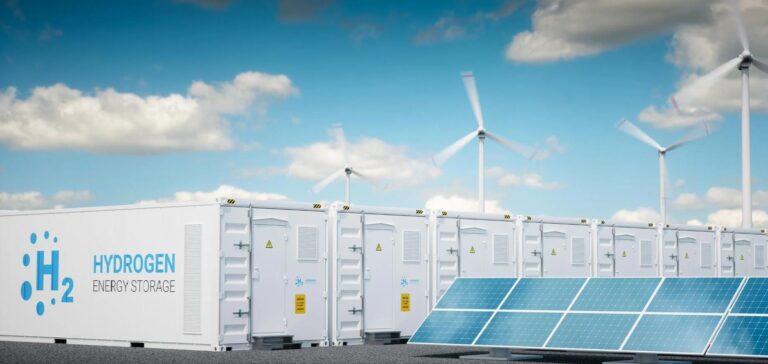The U.S. Department of Energy (DOE) is announcing nearly $42 million in funding for 22 projects in 14 states to advance critical technologies to produce, store and deploy clean hydrogen. DOE also announced $17.8 million in funding to create a new North American academic research consortium that will help states and tribal communities implement electric grid resiliency programs and meet decarbonization goals.
By improving the performance and costs of clean hydrogen technologies while supporting grid resiliency and decarbonization, DOE continues to make progress toward achieving President Biden’s “Investing in America” agenda of a 100 percent clean electricity grid by 2035 and zero carbon emissions by 2050.
Clean hydrogen, which is produced with zero or near-zero carbon emissions, can tap into all of our nation’s clean energy resources, including renewable, nuclear and fossil fuels with carbon capture. Clean hydrogen can also support the expansion of clean electricity by providing a means of long-lasting energy storage and offering flexibility and multiple revenues to all types of clean energy generation, including renewables, the existing nuclear fleet, advanced nuclear power, and other innovative technologies.By enabling the development of diverse domestic clean energy pathways across multiple sectors of the economy, hydrogen development will strengthen American energy independence and accelerate the American manufacturing boom that has already created more than 800,000 jobs since President Biden took office.
Hydrogen projects
The 22 projects announced today will develop technologies for solar fuels, created by capturing sunlight. In addition, they will demonstrate higher density, lower pressure hydrogen storage technologies, reduce the costs of hydrogen fuel cells for medium and heavy-duty transportation applications, and improve hydrogen emissions detection and monitoring, addressing potential global warming impacts.
The projects selected to improve hydrogen emissions detection will complement DOE’s well-established and extensive work on hydrogen leaks, addressing community concerns about hydrogen emissions and safety, and will advance the broader field of leak detection and monitoring technologies. The projects will be managed by DOE’s Hydrogen and Fuel Cell Technologies Office (HFTO) and will also contribute to DOE’s goal, dubbed the Hydrogen Shot, to reduce the cost of clean hydrogen to $1 per kilogram in 1 decade (“1-1-1”). They will support DOE’s H2@Scale initiative, which aims to increase the affordable production, transportation, storage and use of clean hydrogen.






















